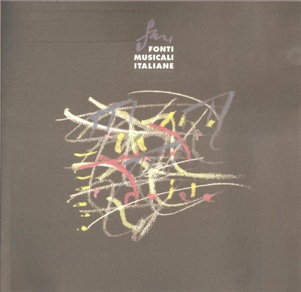Le composizioni per voce e pianoforte nei fondi manoscritti del Conservatorio «Giuseppe Verdi» di Torino
Abstract
Compositions for voice and piano in the manuscript fondi of the ‘Giuseppe Verdi’ Conservatory of Turin
The library of the ‘Giuseppe Verdi’ Conservatory of Turin possesses more than 4000 manuscripts, partly distributed in several historical fondi that go back to the second half of the nineteenth century and the beginning of the twentieth (Fondo Savoia, Fondo Margaria, in addition to the manuscripts already in the possession of the Liceo Musicale) and in most cases acquired after 1935 (the year when the institute became a conservatory) through legacies and donations from Piedmontese composers and their heirs. It was decided to start by examining and cataloguing the compositions for voice and piano: a genre which, since it is often linked/associated with private soirées and always with poetic production, reflects more explicitly than any other genre the cultural milieu in which it originates. As the introduction points out, the period of the compositions taken into consideration covers more than a century, from the second half of the nineteenth century (Luigi Felice Rossi and Stefano Tempia, in addition to the non-Piedmontese composers Filippo Troisi, Filippo Marchetti and Edoardo Vera, all included in the Fondo Savoia) up to the second post-war period (Carlo Mosso). The greater part of the manuscripts, however, can be collocated between the beginning of the twentieth century and the Fifties. Gaetano Foschini, Giovanni Bolzoni, Enrico Contessa, Federico Collino are the most important names of the early twentieth century, without however forgetting Leone Sinigaglia: not only the lyrics of his younger years set to Italian, French and German texts have been taken into consideration, but also the autographs of published collections of old popular songs of Piedmont. Among others, the following stand out in the period between the two wars: Ettore Desderi, Luigi Perrachio, Giulio Cesare Gedda, figures who played an important role in general in the cultural life of Turin and in whose works a significant evolution of the harmonic language (in a moderately modern sense) can be found. Of the same time is Giorgio Federico Ghedini whose fondo of manuscript lyrics is one of the most important, with over a hundred autographs, including also unpublished and unknown compositions. A section has been added to the introduction with brief biographies of Piedmontese composers and bibliographical cross-references. The second part of the work contains 548 entries relative to single compositions or collections, arranged by author and title, with textual incipits, datings and other information gathered from the manuscripts.
##submission.downloads##
Pubblicato
Fascicolo
Sezione
Licenza
© CIDIM
Tutti i diritti riservati


